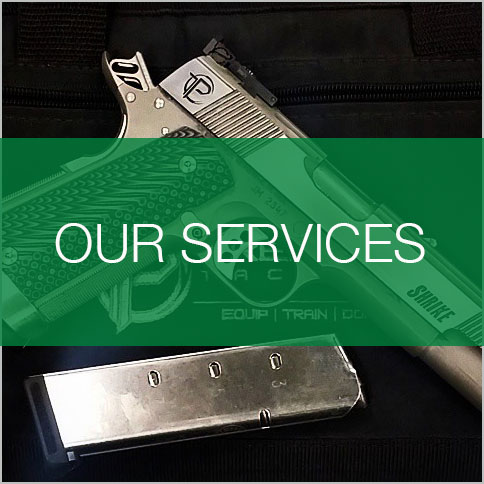Loading the content... Loading depends on your connection speed!
FAQ
A lot of people are unsure how to go about purchasing a suppressor, full auto weapons, short barrel weapons or other NFA items. Hopefully this page will help explain the process. If you still have questions, contact us and we will attempt to help you and answer any questions you may have.
Are suppressors legal?
Suppressors have never been illegal at the federal level. There are, however, a few states that have banned suppressor ownership and/or use. Suppressors have been regulated since the 1934 NFA (National Firearms Act) was passed and the NFA placed a $200 tax on the transfer of suppressors and machine guns.
Currently, these states allow private ownership of suppressors:
AL, AR, AK,AZ, CO, CT, FL, GA, ID, IN, KY, LA, ME, MED, MS, MT, NE, NV, NM, NC, OH, OK, OR, PA, SC, DS, TN,TX, UT, VA, WA, WY
Of the fifteen states that do not allow civilian ownership, CA, IA, KS, MA, MO, MI allow Class III Dealers and Class II Manufacturers to possess suppressors.
How do I buy a Title II Item from a local dealer?
Buying a title II item is not a difficult task. You will need to fill out some forms and send the forms to the ATF with a check for $200. Then simply wait for the forms to be approved.
The local dealer will help the buyer fill out the transfer form. The dealer will also help the buyer fill out another form called the Citizenship form.
This form identifies the buyer either as a United States citizen or legal resident alien. The buyer will need to obtain fingerprint cards and will take them to a local police department. Fees for this service are usually small. The next step for the buyer is to get two passport size photos and attach them to the Form 4. The final step is to take the Form 4 to the local CLEO (Chief Law Enforcement Officer) for the county in which the buyer lives. The CLEO must sign the Form 4 before the form can be sent to the BATFE. (If the CLEO won’t sign, see the answer below at the bottom of the page)
When the forms are approved they are sent back to the selling dealer. The dealer then calls the buyer to come pick up the item.
How do I buy a Title II Item from an out of state dealer?
Buying an NFA item from an out of state dealer is just the same as buying from a local dealer. You pay the out of state dealer for the NFA item and select the local Class II/Class III dealer. The out of state dealer will then transfer the item to your local Class II/Class III Dealer on Form 3 (tax-free). So, you will still need to use a local dealer. The local dealer will handle your transfer on Form 4 ($200 tax). These Forms 3s and Forms 4s are explained later.
Buying out of state will save you on the sales tax, but you will have to pay your local dealer a fee for handling the transfer. Transfer fees are usually $50 to $100.
How do I transfer to an individual?
Form 4 transfers to individuals will require fingerprint cards, passport photos and CLEO signature.
How do I transfer to corporation?
If a corporation is buying an NFA item, instead of sending passport photos and fingerprint cards with the Form 4, the buyer will send one copy of the corporation’s Articles of Incorporation. On the Form 4 the buyer’s name will be the legal company name. No CLEO signature is required for a Form 4 transfer to a corporation. Also, the approval process is usually much faster than an approval for an individual.
Are there any down sides to corporate ownership of NFA items?
Maybe not so much “down side” but there a few unique things regarding corporate ownership of NFA items. A Corporation typically has some annual maintenance. Corporation must be renewed. There is typically a fee for renewal. What happens to the NFA items if you fail to renew the corporation on time?
Depending on the corporation, there may be tax implications for the NFA items.
A good thing about corporate NFA ownership is that any authorized corporate officer can posses the NFA item. So, if a couple of brothers owned the corporation they could effectively share the item. For an individually owned item, the owner must be present when the item is being used.
How do I transfer to a trust?
So, what about a Trust? A Trust is an estate planning tool. It is also another legal entity that can own NFA items. It is a simple task to setup a basic Revocable Living Trust. Many of your customers use programs like Quicken’s Willmaker to create their own Revocable Living Trust. You should always consult an attorney for any legal advice regarding a Trust. The beauty of a Revocable Living Trust is that, as it indicates, it can be altered at any time. Trustees and assets can be added, changed or removed by the grantor of the Trust.
Transferring an NFA item to a Trust is similar to a corporation transfer. The Form 4 must be completed using the Trust’s name as the buyer. No Fingerprint cards or passport photos are needed and the CLEO signature is not required. A notarized copy of the Declaration of Trust (or Certificate of Trust) is sent with the Foam 4. The approval time for a Trust transfer is usually the same as a corporation transfer.
What is a Form 3?
The Form 3 is the transfer form typically used to transfer an NFA item tax-free (meaning no $200 tax to BATFE) between manufactures and dealers or from dealer to dealer. This is how dealers transfer items to other dealers in another state. The approval process for a Form 3 is usually very fast. As of the time of this writing Form 3s faxed to BATFE are taking 7 to 12 calendar days or so for approval.
What is a Form 4?
The form 4 is the transfer form used to transfer an NFA item from a seller to a buyer. The form contains information about the NFA item (Such as a description of the item, serial number, manufacturer, etc.), information about the seller and information about the buyer. On the back of the form are some questions very similar to the questions found on a 4473 form used to transfer to a buyer.
The Form 4 is used for $200 transfers between buyers and sellers. Transfers between dealers are typically done on a Form 3.
Form 4 approvals can take between several days and several weeks. The reality is 9-65 days. Average as of the time of this writing is 30-35 days. This is somewhat NFA-Examiner dependent. Also, note that transfers to Trusts and corporations usually take less time than transfers to individuals.
Make copies of the Form 4!
The Form 4 is a tax document. As such, the NFA item owner is not compelled by any law to disclose information on the form. However, it is strongly advised that the owner keep a copy of the Form 4 with the NFA item at all times. The copy could be used to educate any law enforcement officer who questions the legality of the item. Let’s face it, many people don’t know NFA items are legal. If showing a copy of a Form 4 to an officer keeps you from spending a night in jail, it is worth having.
Keep original copy of your Form 4 in a safe place.
What is a CLEO signature?
CLEO (Chief Law Enforcement Officer) signature is required on the Form 4 for transfers to an individual. The CLEO is only signing the form indicating there is no know reason the buyer should not be allowed to own or possess the NFA items. CLEO signature is not required on the Form 4 for transfers to corporation and Trusts.
Who is this CLEO?
The Chief Law Enforcement Officer (CLEO) who signs the Form 4 can be any of the following people:
Sheriff
Chief of Police
Head of State Police Agency
District Attorney
A Judge with the power of arrest
Any law enforcement officer approved for this procedure by the National Firearms Act (NFA) branch of the BATF.
CLEO will not sign!
The most common obstacle to purchasing an NFA item is the CLEO signature. Some local CLEO‘s just don’t want to sign the Form 4 for whatever reason. Many of the CLEO that will not sign the form thinks they are accepting some liability for future use of the item. There are also some CLEOs who just don’t think an ordinary citizen should own an NFA item. The bottom line is that if your CLEO won’t sign the Form 4 you can still fulfill your right to own these items. You will just need to set-up a Revocable Living Trust or Corporation.
South Mountain Firearms & Ammo provides quality firearms, firearm accessories, Gunsmith services, custom firearms and instruction. We stock most major brands at fair prices. Learn more.

- Categories /
- Brands /
- Services /
- About Us /
- Privacy Policy /
- Terms & Conditions /
- Shipping Policy /
- Return Policy /
- Help






